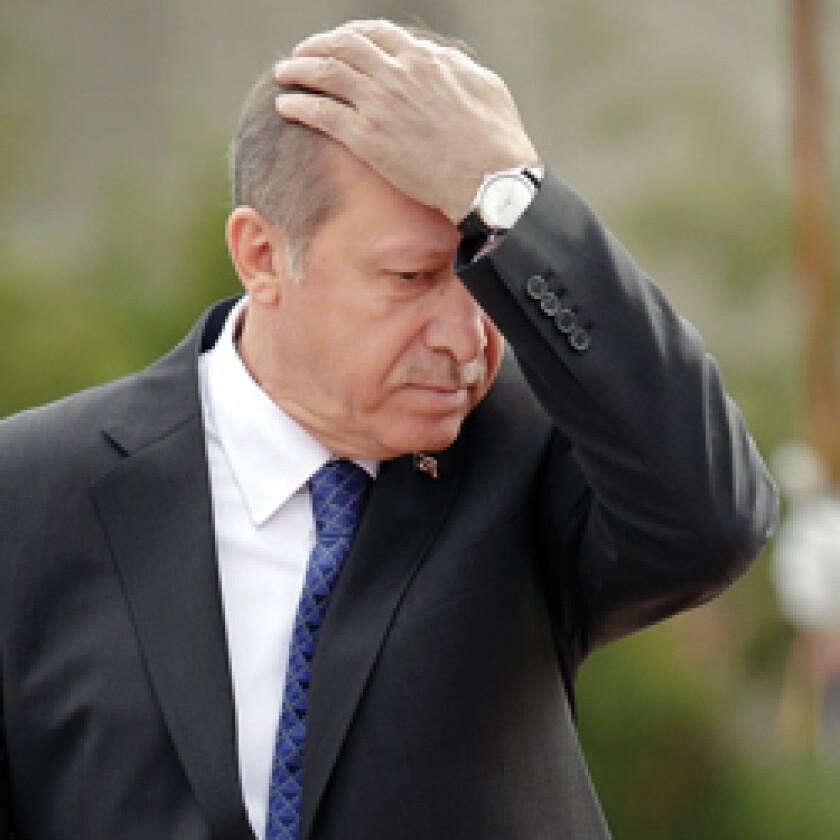Real money investors have lost faith in Turkey’s government and are demanding an “Erdogan premium” for touching Turkish assets, leading analysts have warned.
As the two year anniversary of the 2013 US Treasury taper tantrum approaches, Turkey is one of the few emerging market countries that is more exposed to external shocks than two years ago — in contrast to improvements elsewhere in emerging Europe.
With Turkey’s election just weeks away, the current account deficit is heading back towards $5bn, according to central bank data released this week.
The deficit rose by $1.58bn year-on-year to hit $4.96bn in March, the central bank announced on Tuesday. The bank had expected the deficit to rise to $4.3bn.
For many years, Turkey under Recep Tayyip Erdogan of the AKP party — as prime minister and later president — was the darling of foreign investors.
“The AKP did a great job initially — pulling an almost bankrupt country with double digit inflation into prosperity,” said Michael Ganske, head of emerging markets at Rogge Global Partners in London. “But it’s becoming more autocratic and the progress just isn’t there.”
And as the economy has become less robust, investors have become increasingly troubled by Turkey’s politics. The old “Erdogan discount” has turned into an “Erdogan premium” for holding Turkish assets, according to analysts at Standard Bank, who said a lack of freedom of speech and an increase in levels of corruption had damaged Turkey’s credibility with investors both at home and abroad.
“It’s turned from a positive effect to a negative one,” said Gankse. “You’ve seen that in many countries in the region like Russia and Hungary — autocratic leaders start with good policies, but then overplay their hand and the political risk premium starts to rise.”
‘ERDOGAN HAS TO SHUT UP’
Ganske added the government’s “constant involvement in monetary policy and bashing of the central bank” to the list. Analysts and investors have long bemoaned the central bank’s tendency to cut interest rates while inflatin remains high.
This tendency is all the more worrying against a backdrop of open — and often critical — calls from the government for the central bank to lower rates.
Even if re-elected in June, the government will have to leave monetary policy to the experts. “Firstly, they have to give some credibility back to the central bank,” said Gankse. “Essentially, Erdogan has to shut up.”
Corruption will be another issue for investors. “The questions around the AKP and family ties, question marks around freedom of the media. It’s not Russia, but Turkey is going in that direction where the risks are not economic, they are political,” Ganske said.
However demographics are in its favour. Female participation in the labour force is low and the country boasts a high number of people with PhD degrees from leading US universities, says Bojan Markovic, lead regional economist at the EBRD’s office of the chief economist.
The “ideal window of opportunity” to unleash this potential through wide-ranging structural reform, is a four year election-free window following the general elections in June, Markovic said.
